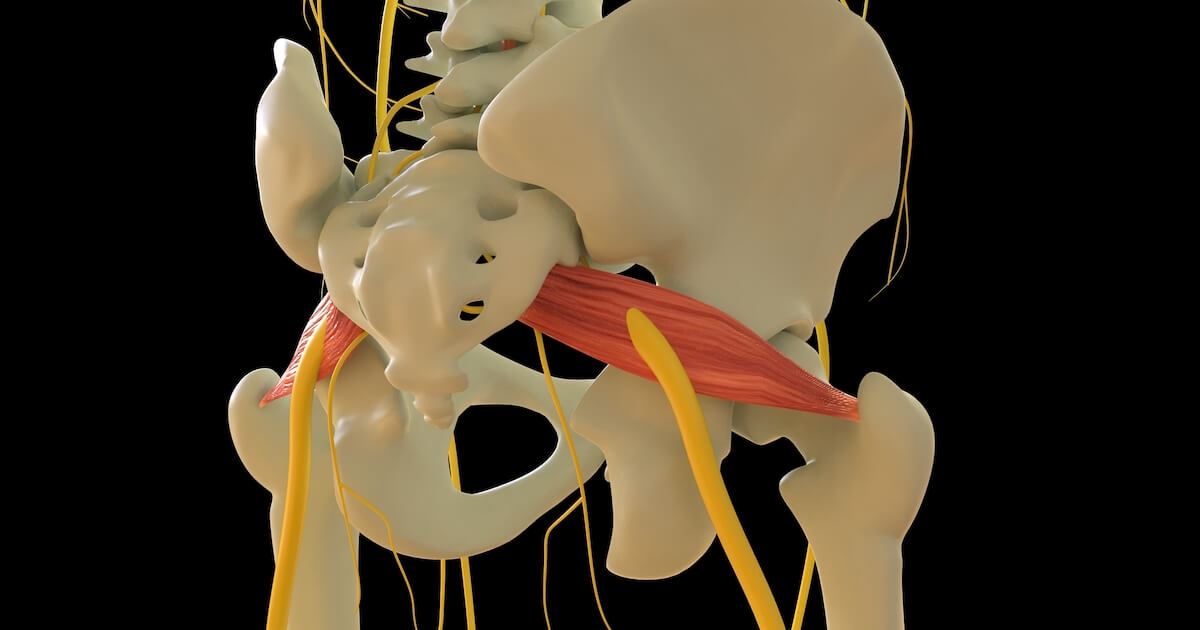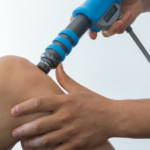Piriformis Syndrome: A Real Pain in the Butt
Are you noticing a dull ache or shooting pain in your glutes after standing, sitting, cycling, training or running? If so, piriformis syndrome may be to blame. Continue reading to learn more about piriformis syndrome, including what makes it a potential cause of sciatica and what you can do to treat it and relieve the pain.
What is Piriformis Syndrome and What Causes It?

Piriformis syndrome is a condition that, as the title of this article implies, causes pain in the buttocks. Piriformis syndrome is a term used to describe a condition affecting the piriformis muscle located deep within the middle posterior gluteal region (behind the gluteus maximus). The piriformis muscle is one (and arguably the most important) of the six lateral hip rotators. It is responsible for externally rotating your hip and upper thigh, abducting your hip when flexed, and stabilizing your sacroiliac joint.
What causes it?
Piriformis syndrome is caused when the piriformis muscle spasms, compressing and irritating surrounding nerves and soft tissues (often including the sciatic nerve), resulting in pain, tingling and/or numbness in the buttock area, which can sometimes also be felt down the back of the upper and lower leg and foot. While the root cause of piriformis syndrome is not yet well understood, the sciatic nerve’s involvement may be due to anatomical anomalies and variations between each individual or, more commonly, due to soft tissue inflammation or muscle spasms/contractions that compress the sciatic nerve as a result of piriformis muscle tightness from muscle or postural imbalances.
A common cause of sciatica pain
The sciatic nerve’s proximity to the piriformis muscle makes it susceptible to compression and irritation caused by the muscle spasms related to piriformis syndrome. Therefore, when lumbar issues such as disk herniation are ruled out as a cause for sciatica pain, and buttock pain isn’t accompanied by lower back pain, piriformis syndrome is most likely the cause.
Piriformis Syndrome Symptoms
The most common symptom of piriformis syndrome is a deep, dull ache, burning, shooting pain, and tingling and numbness that can be felt in the buttock (typically on one side of the body). The pain may also be felt down the back of the thigh, calf and foot and may be accompanied by a reduced range of motion in the hip flexors.
Piriformis syndrome pain is typically most noticeable:
- When walking uphill or taking the stairs
- After sitting, driving, standing or cycling for extended periods
- Following activities such as walking, long-distance running or strength training
- After a traumatic injury, including collisions and falls
- When flexing or rotating the hip and thigh inwards and outwards
The Good News
Surgical correction or steroid injections may be required in rare cases of piriformis syndrome (caused by anatomical anomalies or trauma). However, the good news is that most cases of piriformis syndrome can be successfully treated with the following interventions and rest:
Proper assessment and diagnoses
After ruling out sciatic pain caused by spinal issues, your physiotherapist or health practitioner will use a series of movements to indicate whether or not the piriformis muscle is causing sciatic nerve compression and pain.
Tailored treatment
Treating piriformis syndrome typically requires physiotherapy to help stretch the piriformis muscle and improve hip mobility, posture and muscular conditioning.
At-home maintenance and prevention
Following the stretches and exercises your physiotherapist gives you can help prevent the recurrence of pain caused by piriformis muscle tightness, spasms and nerve compression.
Treating Piriformis Syndrome and Sciatica Pain in Victoria, BC
Don’t ignore pain. Start the healing process today by booking your appointment with one of our expert physiotherapists. Call Diversified Health Clinic today at (250) 382-0018 or book an appointment online.





